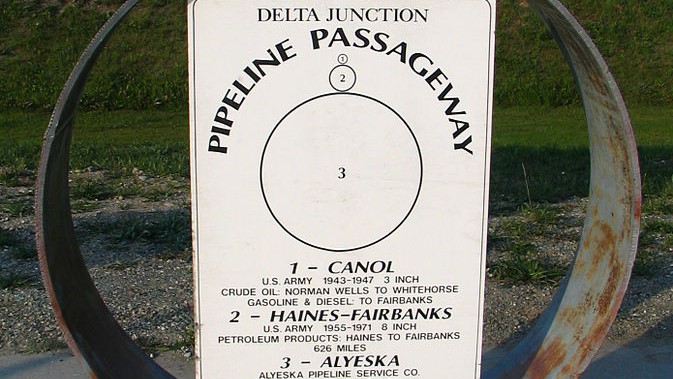Russia’s military and diplomatic opposition to the overthrow of former Ukrainian President Viktor Yanukovych
has raised concern that Russia might cut off Ukraine’s gas as it has in previous disputes, disrupting broader European energy markets. In an email interview,
Keith Smith, a former U.S. ambassador to Lithuania who is currently a distinguished resident fellow at the Center for European Policy Analysis, explained how Russia’s leverage over energy markets has changed since it last cut off gas supplies to Ukraine. The views expressed here are Smith’s and do not represent those of any organization.
WPR: How has Ukraine’s position in the energy chain changed since its 2008-2009 gas disputes with Russia?
Keith Smith: Ukraine continues to have a significant problem paying for imported gas from Russia. Russia’s state-owned gas company Gazprom announced that on April 1, the price it charges Ukraine for gas will return to the old, expensive $450 per thousand cubic meters (TCM), versus the $265 TCM Ukraine is paying now. Hopefully, the Western community will help Ukraine pay its import bills, at least over the short term. The International Monetary Fund has agreed to provide a substantial loan to Ukraine, possibly $15 billion, but the new government will have to meet the politically difficult condition of increasing the price of gas to domestic consumers. I suspect that it will, now that its back is to the wall.
The good news is that over the past 18 months, the Yanukovych government was able to reduce direct gas imports from Russia by almost 50 percent, through lower domestic consumption and by importing Russian-sourced gas through Germany and Poland. These are not large quantities of gas, but they help, even if the price is still high.
If Ukraine can stay the course regarding energy reform and attracting foreign investment in on- and offshore exploration and development, it should be able to substantially increase domestic production, although this will take a minimum of three to five years. In the meantime, Ukraine will have to move even faster on energy efficiency programs, and ramp up coal production and the use of renewables. With the help of large foreign energy companies, Ukraine could eventually become almost independent of Russian gas. Obviously, however, there are still a lot of uncertainties.
WPR: How has the European Union’s position changed?
Smith: The EU is in a somewhat better position than it was in 2009. The shale gas “revolution” in the U.S. has given EU countries increased leverage when negotiating gas prices with Russia. Since the U.S. no longer requires liquefied natural gas (LNG) imports, the world market is more favorable to gas importers. Norway is now selling more gas to Europe than Gazprom. The Russian company now has a more difficult time locking customers into long-term contracts or take-or-pay agreements as a result of these greater international gas supplies. EU regulations have also reduced Gazprom’s bargaining power. Russia is trying to sidestep EU requirements (the Third Energy Package) that separate the gas supplier from domestic distribution in EU member states, but it still faces resistance in some EU quarters.
Since 2009, the EU has taken significant steps toward building more gas and electricity interconnections between members states. This provides greater security in the event of a disruption in supply from the outside. Even the Baltic states, long considered “energy islands,” are benefiting from EU infrastructure funding. A second electricity line is being built from Finland to the Baltic states, and power lines are now being built from Lithuania to Sweden and will soon be built from Lithuania to Poland. Countries with access to the sea, such as Poland and Lithuania, are building LNG receiving plants.
In sum, EU members are in better shape as far as avoiding serious harm from energy shutdowns than they were five years ago.
WPR: What does the state of the energy supply suggest about Russia’s ability to exercise influence on Europe?
Smith: As I mentioned, the enormous development of new gas supplies in the U.S. has already had a positive spillover effect in Europe. LNG shipments from Qatar, Norway and Russia that were destined for receiving plants on the East and West Coasts of the U.S. are now being diverted to Europe and other consuming countries. In the next few years, even more gas will be entering the international market from Australia, East and West Africa and from the U.S. China has an ambitious program to develop shale gas, and it is on schedule to bring significant amounts to market by the end of the decade. Another factor affecting Gazprom’s leverage is China’s purchase of large quantities of gas from Turkmenistan; this is gas that Russia had expected to control for its own market and for passing on at a high price to Europe. Russia’s monopoly over gas and oil exports from the entire Caspian area has diminished greatly, as a result of supply agreements with China, and in the near future to Europe via the Trans-Adriatic Pipeline.

